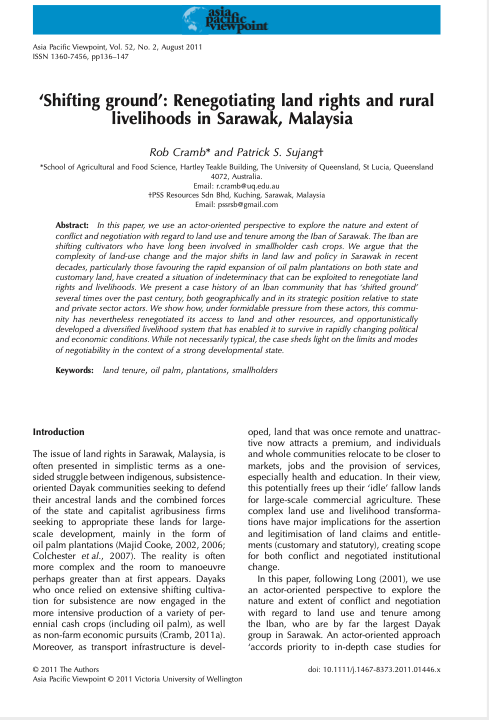Resource information
Asia Pacific Viewpoint © 2011 Victoria University of Wellington
In this paper, we use an actor-oriented perspective to explore the nature and extent of conflict and negotiation with regard to land use and tenure among the Iban of Sarawak. The Iban are shifting cultivators who have long been involved in smallholder cash crops. We argue that the complexity of land-use change and the major shifts in land law and policy in Sarawak in recent decades, particularly those favouring the rapid expansion of oil palm plantations on both state and customary land, have created a situation of indeterminacy that can be exploited to renegotiate land rights and livelihoods. We present a case history of an Iban community that has ‘shifted ground’ several times over the past century, both geographically and in its strategic position relative to state and private sector actors. We show how, under formidable pressure from these actors, this community has nevertheless renegotiated its access to land and other resources, and opportunistically developed a diversified livelihood system that has enabled it to survive in rapidly changing political and economic conditions. While not necessarily typical, the case sheds light on the limits and modes of negotiability in the context of a strong developmental state.
Keywords: land tenure, oil palm, plantations, smallholders

